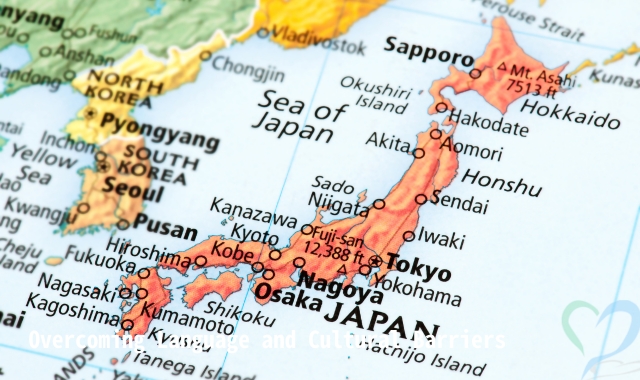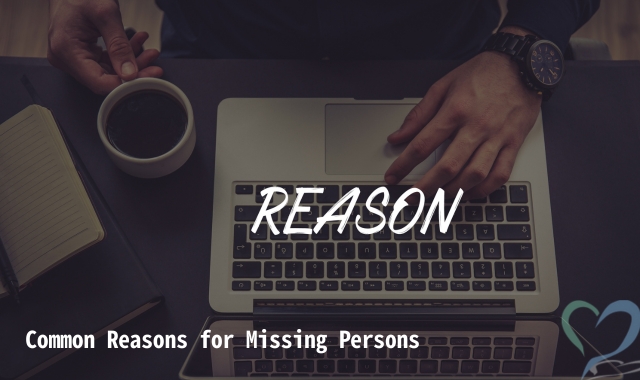What to Do If Your Family Member Goes Missing During a Trip to Japan
NEWS

When a loved one goes missing in a foreign country, it can be a frightening and disorienting experience—especially when facing language and cultural barriers. This guide offers an in-depth look at the steps you should take immediately, how to communicate effectively with local authorities, and the various support services available for foreign travelers in Japan. By acting quickly and leveraging the right resources, you can significantly increase the chances of finding your missing family member. The additional sections below also cover medical facility coordination, insurance details, working with foreign communities and NGOs, privacy considerations, and more.
Introduction

Japan is considered one of the safest countries in the world, which can make the disappearance of a loved one during a trip feel both unexpected and distressing. In unfamiliar territory—where language, culture, and procedures differ from back home—you may not immediately know where to turn. Understanding the practical steps to take and knowing what resources are available can help you act confidently and quickly in the event your family member goes missing. This guide provides detailed information on how to file a report, communicate with law enforcement, use available support systems, and manage the next steps after your loved one is found. Remember, in cases of missing persons, time is often of the essence.
Immediate Actions to Take

Submit a Missing Person Report
One of the very first actions you should take is to contact the nearest police station (or Koban, which is a smaller neighborhood police box). In Japan, you can file a missing person report called a 行方不明届 (yukue fumei todoke). When submitting this report:
1. Bring Essential Information
Carry recent photos of the missing person, including digital and printed copies if possible. Be prepared to give a detailed physical description (height, build, hair color, clothing worn at the time of disappearance, and any identifying marks), as well as last known whereabouts and any medical conditions.
2. Explain the Circumstances Clearly
Let the police know when and where you last saw the person, and whether there were any unusual circumstances—such as confusion or conflict prior to their disappearance.
3. Understand Restrictions on CCTV Footage
In Japan, police generally cannot freely access CCTV footage unless they suspect a crime or serious incident. Even if there are cameras in the vicinity, official authorization and a determined cause are often required.
By promptly filing this report, you ensure that local law enforcement has all the necessary details to start an official search. Keep in mind that the police might initially ask questions to rule out misunderstandings (e.g., a simple case of getting lost). Persistence, clarity, and documented evidence (such as text messages or phone call logs) can help them grasp the seriousness of the situation.
Notify Hotels and Tourist Spots
In parallel to filing a police report, make sure to inform any relevant accommodations or tourist destinations:
1. Hotel or Hostel Staff
Front-desk employees may have noticed something out of the ordinary, such as your family member leaving abruptly. They can also watch out for your loved one if he or she returns or calls. Moreover, many hotels keep track of guests’ comings and goings, which could provide clues to their last known time on the premises.
2. Local Tourist Attractions
If the disappearance occurred during sightseeing, staff at theme parks, temples, museums, or other popular spots might remember seeing someone matching the description. They often keep visitor logs or might have insight into common travel routes people take to and from these attractions.
3. Provide a Clear Description
Whether you speak directly with hotel managers or leave information at a theme park’s lost-and-found department, share photos and as many details as possible in writing. If necessary, use a simple translation app to ensure key details are understood.
Use Social Media and Hotlines
Social media can be a powerful tool in missing-person cases, especially when language and geographical barriers come into play:
1. Leverage Various Platforms
Twitter, Facebook, Instagram, and local community apps like LINE (popular in Japan) can spread information rapidly. Post the missing person’s photo, last seen location, and ask for any sightings or tips.
2. Foreign Visitor Hotlines
Japan National Tourism Organization (JNTO) provides a 24-hour hotline that can assist travelers in multiple languages. Their staff can offer advice on contacting the police, navigating local transportation systems, and finding medical facilities if necessary.
3. Community Groups
Look for local English-speaking groups or expatriate communities on social media. People living in Japan long-term might know how to handle such situations more efficiently or can help with Japanese translation.
By combining official channels (police, hotels) with modern outreach (social media and hotlines), you maximize the chance that someone has spotted your family member and can relay information to you.
Overcoming Language and Cultural Barriers

Contact Public Transportation Services
Since Japan has an extensive public transportation network—comprising trains, buses, and bullet trains (Shinkansen)—it’s wise to inform relevant operators that you’re searching for someone:
1. Railway and Bus Operators
If you suspect the missing person traveled to a different city, contact major railway companies (e.g., JR East, JR West) and local bus terminals. Staff members may have noticed someone who seemed lost or distressed.
2. Lost and Found Offices
Most large stations have a dedicated lost and found or “General Information” center where unclaimed items or inquiries about missing people can be directed. Providing them with a photo and contact info can help if the person is later seen wandering.
3. Stations and Departure Points
Make it a point to speak with station attendants. In some cases, the missing person might simply be waiting or asking for directions.
Use Translation Apps or Interpreter Services
Communication challenges can slow down the search, so bridging the language gap is crucial:
1. Translation Apps
Tools like Google Translate, DeepL, or Microsoft Translator can help convey basic details. Keep sentences concise and straightforward for more accurate translations.
2. Professional Interpreters
In critical situations, hiring an interpreter (either in-person or by phone) can save time and reduce misunderstandings. Having someone fluent in Japanese to speak on your behalf often conveys urgency more effectively to the police or hospital staff.
3. Preparing Pre-Translated Documents
Consider writing down key details—name, date of birth, last known location, and any medical concerns—in Japanese. Handing over a concise document can be more effective than trying to explain under stress.
Communicating Effectively with the Police
While Japan’s police force is helpful, language barriers and cultural differences can complicate matters:
Be Organized and Thorough
Present information systematically—photos, identification details, timeline of events—and emphasize any vulnerabilities (e.g., health conditions or intellectual disabilities).
Maintain Politeness and Patience
Japanese culture places a high value on politeness. Remain calm, speak clearly (or through an interpreter), and show appreciation for any assistance offered.
Follow Up Regularly
If you don’t hear back promptly, politely inquire about updates. Demonstrating that you’re actively involved can encourage more immediate action.
Common Reasons for Missing Persons

Getting Lost
Japan’s efficient but sprawling train networks, crowded cities, and unfamiliar signage can disorient visitors:
Separation in Crowded Areas: It’s easy for families to get split up in train stations or busy shopping districts. Elderly or disabled family members are particularly vulnerable.
Language Obstacles: Inability to read Japanese signs or ask for directions may trap someone in the same vicinity for hours.
Theft or Lost ID
Losing important documents can cause panic, leading a person to behave unpredictably:
Fear of Authority: They may avoid contacting the police if they don’t have valid identification, fearing potential legal complications.
Difficulty Accessing Funds: Without credit cards or cash, the missing individual might be stuck in one location or, conversely, move around seeking help.
Health Emergencies or Accidents
Health-related incidents can occur unexpectedly:
Hospitalization Without Identification: If someone collapses or is injured, they may be taken to a hospital. In cases where they can’t communicate or don’t have identification, it can take time for medical staff to determine who they are.
Medical Conditions: Conditions like diabetes, dementia, or epilepsy can lead to disorientation or unconsciousness. Informing authorities about any known conditions increases the likelihood of a swift recovery.
Crimes or Serious Incidents
While Japan generally has a low crime rate, no country is risk-free:
Scams or Spiked Drinks: Tourists can be targeted by unscrupulous bars or individuals.
Abductions or Robbery: Extremely rare, but possible. If you suspect foul play, stress this to the police so they can escalate the investigation.
Search Support Services for Foreign Visitors

Embassy or Consulate Assistance
Embassies and consulates can be invaluable when dealing with local authorities:
Verification of Identity: If your missing family member is found without a passport or ID, the embassy can confirm their citizenship and issue emergency documents.
Liaison with Authorities: Officials at your embassy are accustomed to interacting with Japanese government agencies and can help clarify bureaucratic procedures, often bridging language gaps.
Tourist Information Centers
Japan’s tourism infrastructure is well-developed, and many major cities have official visitor centers:
Multilingual Staff: Staff typically speak English and sometimes other languages, making it easier for you to explain the situation.
Coordinated Network: Tourist information centers can connect you with their branches across the country, broadening your search beyond a single region.
Practical Guidance: They can advise on transportation routes, local customs, and effective communication methods with regional police offices.
Hiring a Private Investigator
If the initial search does not yield quick results, consider hiring a professional:
Benefits of Local Expertise: Private investigators based in Japan know how to navigate local systems—legal, cultural, and logistical. They can often collect information faster than someone unfamiliar with Japanese protocols.
Language and Negotiation Support: Agencies like FAM Investigation Company offer bilingual investigators who can accompany you to police stations, facilitate conversations with business owners, or check records not easily accessible to the public.
Time-Sensitive Action: The first three days are crucial in missing-person cases. An investigative team experienced in urgent searches can significantly improve the odds of a safe and quick reunion.
After Your Family Member Is Found

Preventive Measures
Once you locate your loved one, it’s essential to reflect on how to avoid similar problems in the future:
GPS Tracking Apps: Using smartphone apps that share real-time locations can prevent future separations.
Hotel Business Cards and Emergency Info: Encourage family members to carry the hotel’s contact details and your local phone number. If they have special needs or disabilities, prepare a small card that explains it in Japanese.
Notifying Police and Support Organizations
When your family member is safely back:
Close the Case: Return to the police station where you filed the missing person report to inform them your family member has been found. This saves resources and prevents continued searches.
Update All Parties: Alert the embassy, consulate, or any agencies assisting your case. If you used social media or community groups, post a quick update so people know the search has ended.
Checking Insurance and Coverage
Travel insurance can sometimes cover expenses related to missing persons:
Medical Bills and Lost Property: If your relative required medical attention, submit claims to your insurance provider along with receipts.
Investigation Fees: Certain higher-tier insurance plans might offer coverage for emergency services, which can include parts of the search process or legal assistance. Check policy details thoroughly.
For a More Effective Search

Below are more specialized topics that can enhance your search efforts and help you prepare for different scenarios.
Coordination with Medical Facilities and Welfare Institutions
Hospital Checklists: Keep a list of nearby hospitals, clinics, and emergency numbers (119 for ambulance). Some hospitals specialize in psychiatric or geriatric care, so knowing which facilities to contact first can save time.
Welfare Offices and Shelters: People with intellectual or physical disabilities may be taken into protective custody if they cannot communicate their identity. Consider contacting local welfare or public health centers in case the missing individual is under temporary protection.
Leveraging Insurance and Coverage Plans
Contact Your Insurance Provider: Some travel insurance policies may cover search and rescue costs, or provide an interpreter. Reach out early because paperwork can be time-consuming.
Credit Card Insurance: Certain credit cards include missing-person support or emergency assistance as part of their benefits. Check your card’s policies and have the necessary contact details on hand.
Engaging Foreign Communities and NGOs
Local Expat Groups: Online communities (e.g., Facebook groups, Meetups) can help distribute missing-person information quickly in multiple languages.
NPO/NGO Support: Beyond government and embassy services, nonprofit organizations in Japan often assist foreign residents with legal or language barriers. They may help you navigate administrative procedures or communicate with authorities.
Strengthening Preventive Measures
Shared Itineraries: Maintain a shared schedule among family members, including meeting points and estimated times of return.
Prepared Contact Lists: Before traveling, compile key numbers (embassy, insurance, accommodation) and store them in multiple places—on your phone, on paper, and shared digitally with everyone in your group.
Balancing Privacy and Information Sharing
Understanding Japan’s Privacy Laws: Hospitals, hotels, and transportation companies may hesitate to share data without proper documentation due to strict privacy regulations.
Public Posting Considerations: If you plan to post personal details or photos online, weigh the benefits of quickly finding your loved one against potential privacy risks. If the missing person is a minor, be especially cautious.
Special Considerations for Minors
Child Consultation Centers: In Japan, minors found wandering or in distress may be placed under the care of a child consultation center. Communication with these centers can be more complex if the child’s identity is unclear.
Contacting Educational Institutions: If the missing person is a student, their school or exchange program coordinator may have critical information or resources to help locate them.
Handling Potential Crime or Serious Incidents
Legal Support: If you suspect a crime or if evidence points to kidnapping or assault, consulting a lawyer may be prudent. Organizations like 法テラス (Japan Legal Support Center) offer free or low-cost consultations.
Media Involvement: Contacting local or international media can raise awareness, but it can also attract unwanted attention or complicate investigations. Weigh the pros and cons before making such a decision.
Choosing a Private Investigator: A Checklist
Track Record and Expertise: Ask about the agency’s experience with missing-person cases, success stories, and references.
Fee Structure and Contracts: Clarify whether costs are based on a flat fee, a retainer plus success fee, or purely success-based. Understand how expenses are calculated and if unexpected charges may arise.
Confidentiality Measures: Ensure the firm maintains strict data protection and does not share sensitive information with third parties without your consent.
Conclusion

Dealing with a missing family member in an unfamiliar country is daunting, but Japan offers multiple avenues of support—police, embassies, interpreter services, and professional detective agencies. Early action is paramount, especially within the first three days. By incorporating additional strategies—such as contacting hospitals, reaching out to foreign communities, and understanding privacy laws—you can streamline your search. Having bilingual professionals accompany you or advocate on your behalf can further expedite the process.
If you need expert assistance, consider contacting a reputable agency like FAM Investigation Company, which provides bilingual staff experienced in missing person searches and negotiation support with local authorities. Your quick and decisive steps, combined with thorough preparation and the right resources, greatly increase the chances of a safe reunion with your loved one.
- The Mystery of Johatsu: Japan’s Vanishing People Phenomenon
- Uncovering the Truth | Investment Investigations
- Real Estate Investigations: Safeguarding Your Investments
- Employee Background Check at Branches in Vietnam: Key Points for Risk Management
- Employee Background Check at Branches in Thailand : Key Points for Risk Management
- Finding Your Fiancée Who Disappeared After Getting Engaged Overseas